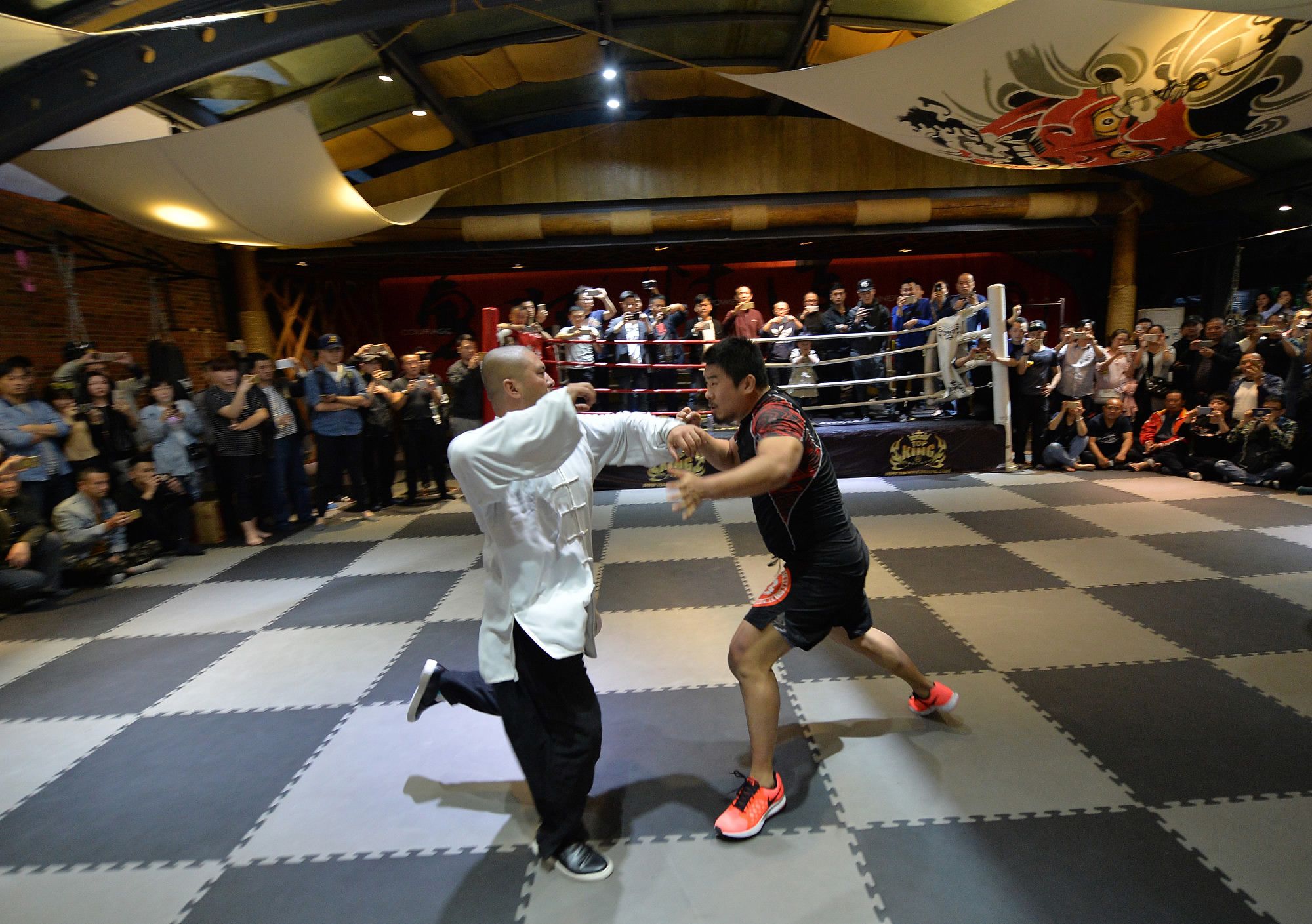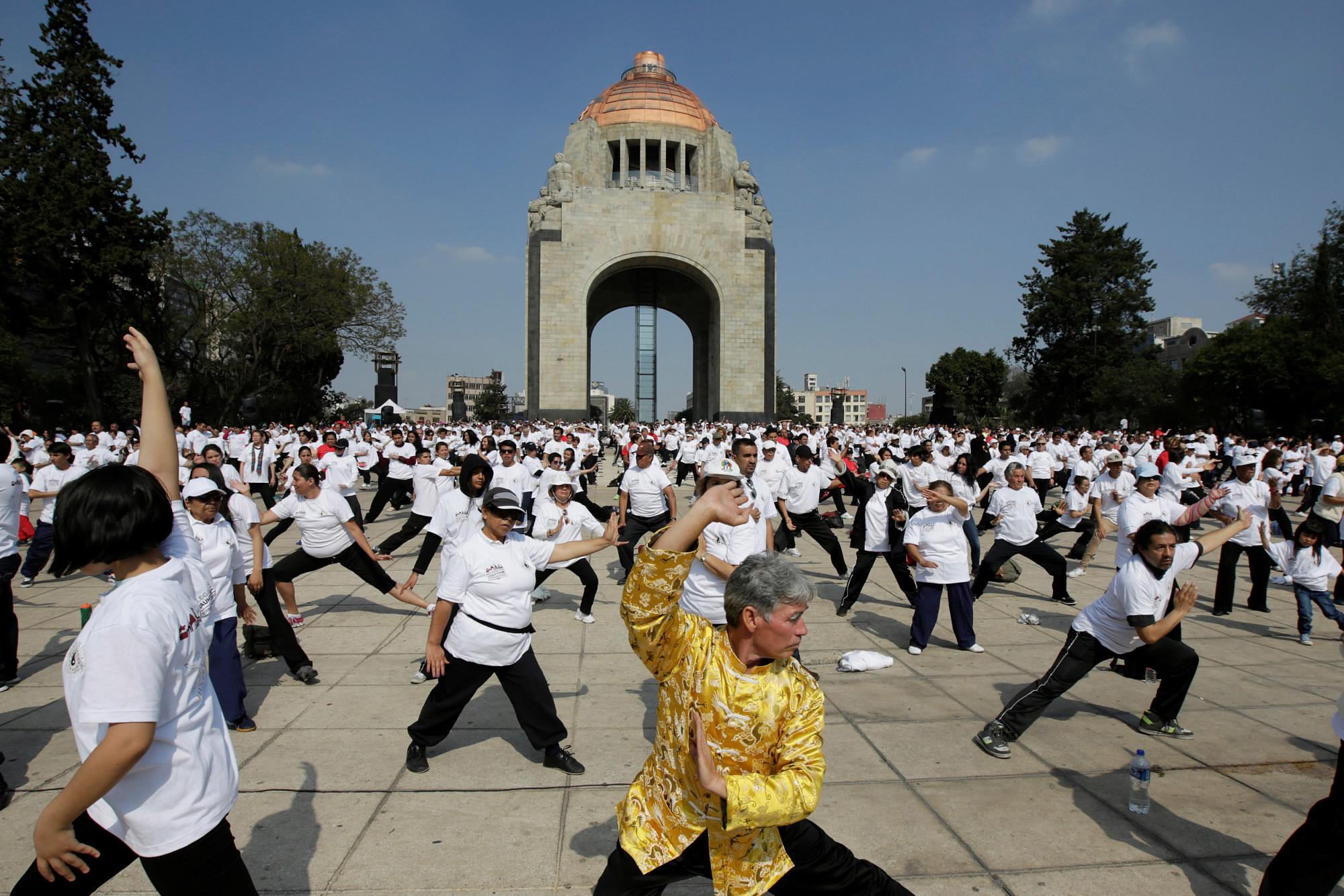Last Thursday, a fight between tai chi teacher Leilei and MMA (mixed martial arts) fighter Xu Xiaodong attracted thousands of live stream views, and set off a massive debate on how strong Chinese kung fu is when compared to modern fighting techniques. Footage of the fight shows the combat lasting barely ten seconds, with Leilei thrown to the floor and pummeled by Xu almost instantly.
However, these two disciplines simply cannot be compared. Tai chi is just one of many kinds of Chinese traditional martial arts, and is mostly practiced for its health benefits rather than as a form of fighting.

The fight between Taichi teacher Leilei and free combater Xu Xiaodong. /VCG Photo
Even though the tai chi teacher apologized for his performance and decision to take part, there were still many comments showing pessimism about the future of Chinese martial arts. Others however defended kung fu, claiming it would never be defeated.
Literature and blockbuster movies may have left audiences with a romanticized view of kung fu. But more damage is being done today, as people look to profit from the ancient tradition of kung fu by spreading hype online and even committing fraud in its name.
Before the founding of the People's Republic of China in 1949, Chinese traditional martial arts were regarded as a method of preserving Chinese national pride in the face of invasion by foreign aggressors, with kung fu, tai chi and all other forms of martial arts not only keeping the body healthy, but also containing Chinese traditional culture.

About 8,000 Mexican tai chi fans gather in Mexico City to celebrate World Tai Chi Day. /VCG Photo
Today, more and more people overseas are studying tai chi or other Chinese traditional martial arts, as interest grows in traditional Chinese culture. While the fight between Leilei and Xu Xiaodong may have been billed by some as a face-off between Chinese martial arts and modern MMA, ancient traditions like tai chi are surely here to stay, especially as they go global.









